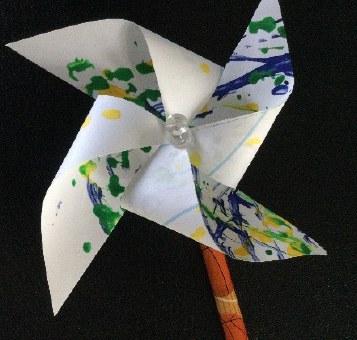Posted: July 19, 2021
During this COVID season, summer camps will not be the same for school-agers or the staff who supervise them. Here are some safe, socially-distanced activities that tap in to the joy of friendships and connecting in the good ‘ole summertime. (Third in a series)

A dozen summertime experiences that develop social-emotional learning (SEL) skills for school-age youth honoring COVID-respectful restrictions
General tips
- Find shade or create a canopy of shade to make extended outside, distanced time more comfortable.
- Take as many indoor activities outside as possible, weather permitting.
- Assign each school-ager their own beach towel, water bottle, and mask. Using the oversized towel will help students space appropriately. It may help for each youth to have their own set of art supplies--scissors, crayons, chalk, pencil--and one koosh ball, hacky-sac, fidget toy, or pair of rolled socks.
- Updated guidance from the CDC--"Children's paperback books, like other paper-based materials such as mail or envelopes, are not considered a high risk for transmission and do not need additional procedures for cleaning or disinfection" (CDC, 2021).
Experiences
Create and walk a labyrinth (a meandering spiral or other wandering path)--using natural materials or chalk, youth mark out a labyrinth, then slowly walk from the outer edge to the inner core and then back out. (Consider photographing the spirals that youth create. These images can then be traced by the finger in a meditative exercise).
- Pinwheels for self-regulation--design and color your own.
- Glitter bottles/lava lamp bottles--use a clear plastic bottle and lid, water, food coloring, mineral oil, and sparkly items. This is a great self-calming tool.
- Feelings charades--act, draw, or create a fill-in-the blank puzzle (think wheel of fortune) using a list of feeling words. Others on the team will guess what the youth is depicting.
- I spy: focus power--nurture youth's ability to pay attention and ignore distractions. Put on "focus glasses" and look to find an object that fits the description of the caller's clues, offered one at a time. "I spy something that is…" This fun exercise develops the very important SEL skill of self-control.
- Who am I 3D sculpture--wire, glue, or tape together recycled/found/art materials to create a sculpture that is a 3D answer to the question "Who am I?" Allow this worksheet to inspire the elements of the sculpture. It can be a self-portrait or a more abstract response. Alternate idea: create a coat of arms.
- 4S Interviews--staff-to-youth or peer-to-peer, find out about the sparks, strengths, struggles, and supports in each person's life through questions like "What's something you really enjoy doing?" "What do you consider one of your best qualities?" "What are things you're afraid of or worry about?" "Who are the people who matter most to you?"
- Listening walk--Paul Showers' book The Listening Walk says "I like to take walks. I take walks with my father and our dog…on a listening walk, I do not talk. I listen to all the different sounds." A listening walk provides a change of pace for children who go outside often--experiencing the same world in a new way. Reading the book would be an excellent preamble to a walk.
We belong to many groups--This activity gets kids up and moving after a sedentary time and strengthens a sense of community.
- Crystal letters--Youth shape their first name initial out of a pipe cleaner. Then using a borax solution, they grow crystals in the shape of their letter. Use the solution and instructions on this handout. Make a letter instead of a six-pronged snowflake.
- Passion playlist--Each youth writes a list of the top ten songs that inspire them. Think about songs that pump them up, make them get off the couch, or want to draw, write, or run faster. Pick songs that remind them of people they admire or places they visited that were awesome. If technology is available, create the actual playlist using mobile devices, Internet, and YouTube or free Spotify service. Take turns playing these lists at lunch or exercising to them.
- Summer love box--repurpose a small cardboard box. Decorate it and label it with each student's name. Each time youth do something that they love this summer, write it on a slip of paper and keep in the box. Write down moments, tastes, amazing sights, accomplishments, or affirmations received. Consider giving affirmations to peers. Use the box to capture the great memories of a summer.
We are very interested in what these dozen ideas might inspire in your youth. Take photos, post to your organization's social media pages, and tag Better Kid Care.
Acknowledgement
- Some experiences adapted from: "Social and emotional learning activities for families and educators," Washington Office of Superintendent of Public Instruction
- Virginia Partnership for Out-of-School Time
- BKC author team
Reference
Centers for Disease Control and Prevention (CDC). (2021). Guidance for Operating Child Care Programs during COVID-19.

